Find Help
More Items From Ergsy search
-
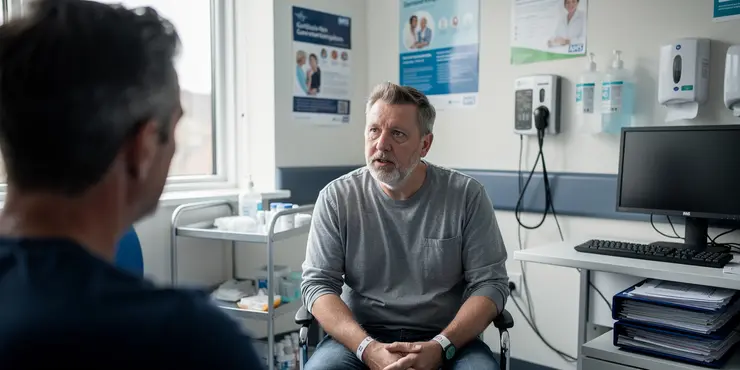
Kidney transplant waiting stories – DJ Ace and Lauren | NHS Organ Donation
Relevance: 100%
-
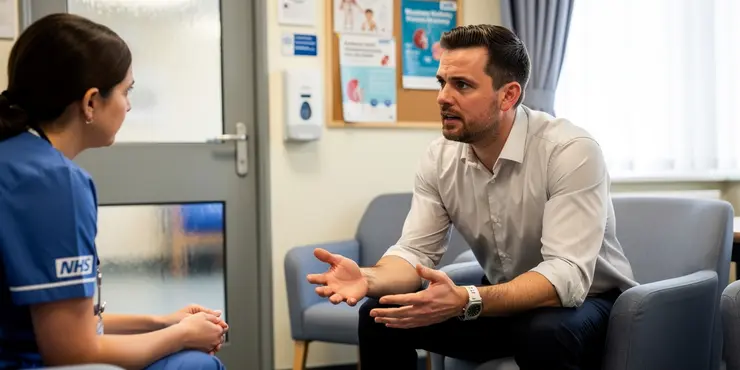
Matthew's Story: Kidney Transplant - Part 1
Relevance: 73%
-
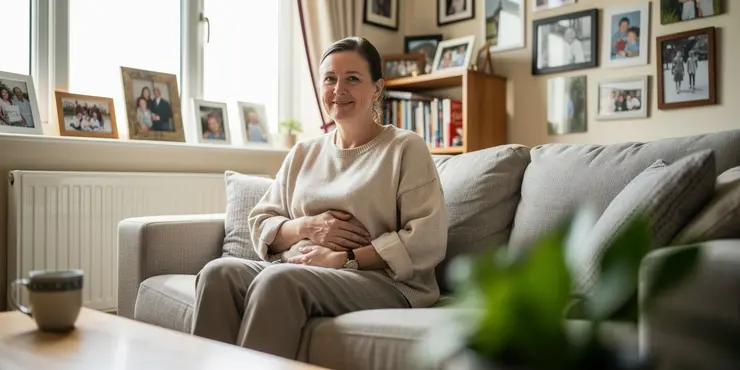
Patient Stories - Having a kidney transplant
Relevance: 62%
-
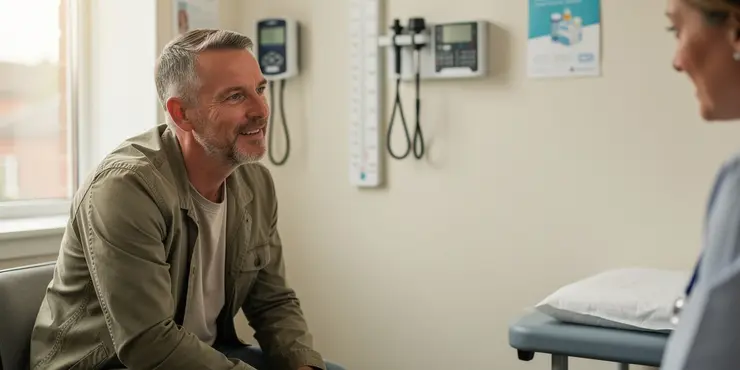
Bernard's Story - Lung Transplant
Relevance: 62%
-
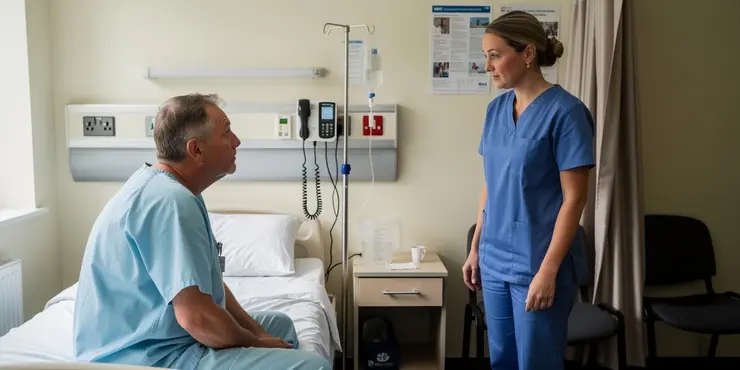
Having a kidney transplant
Relevance: 60%
-

Heart-lung transplant patient shares her story
Relevance: 50%
-
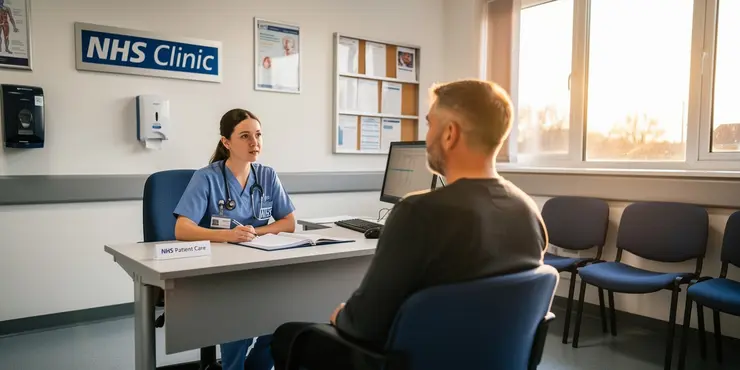
Chronic kidney disease: What are the treatments?
Relevance: 32%
-
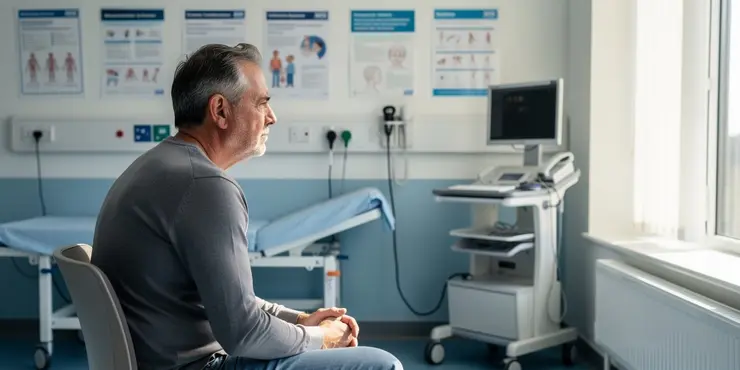
Liver transplant - Patient experience - Part 1 (Colin)
Relevance: 31%
-
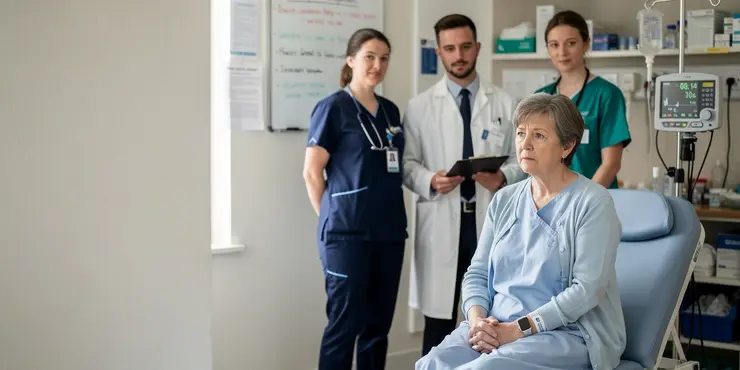
Liver transplant - Patient experience - Part 2 (Lynne)
Relevance: 31%
-
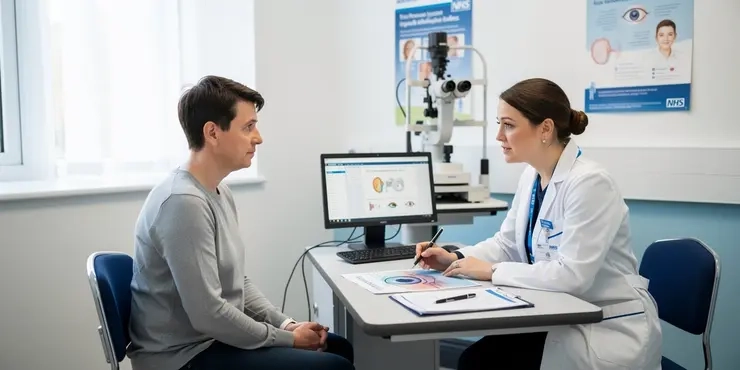
Cornea transplant patient Information
Relevance: 27%
-
Cornea transplant - Your journey
Relevance: 26%
-
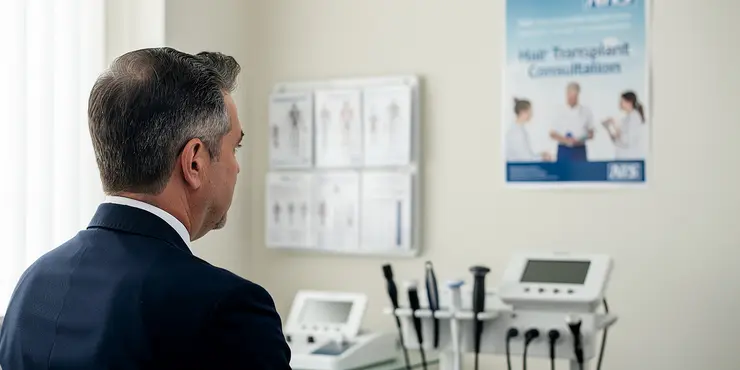
Hair Transplants in Turkey
Relevance: 26%
-
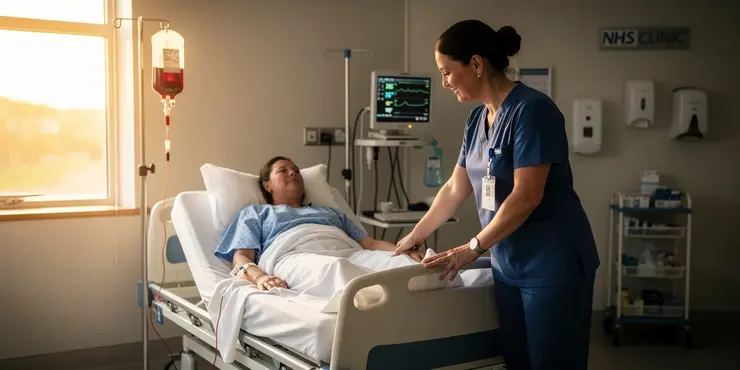
Can you donate blood specifically for a friend or family member?
Relevance: 25%
-
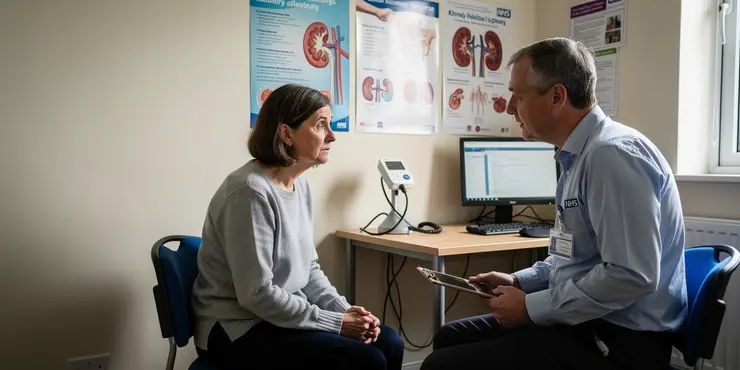
What is my risk of kidney failure with CKD (chronic kidney disease) | UHL NHS Trust
Relevance: 25%
-
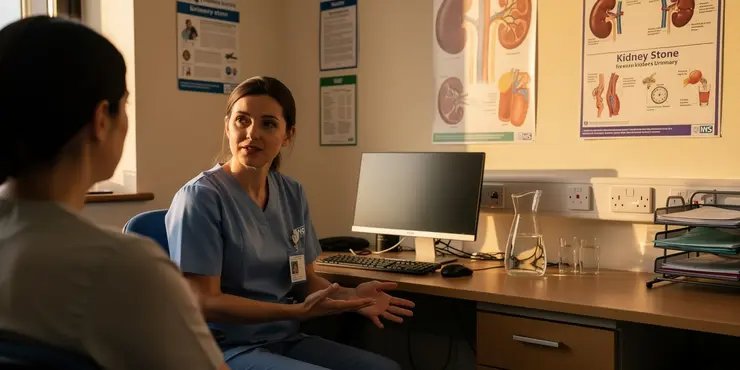
What are kidney stones?
Relevance: 24%
-
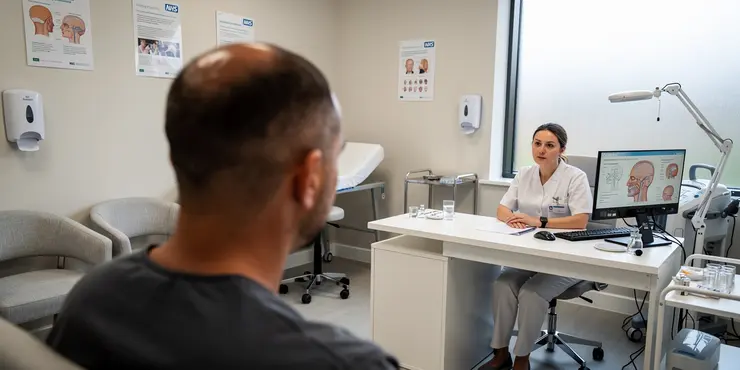
Are hair transplants in Turkey safe?
Relevance: 23%
-
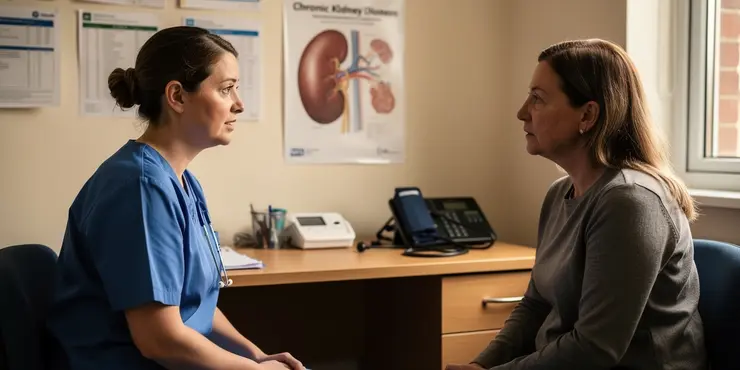
What causes chronic kidney disease?
Relevance: 23%
-
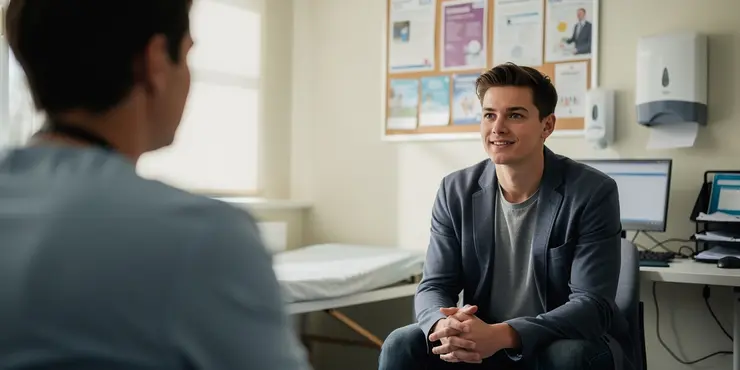
Danny's Story
Relevance: 23%
-
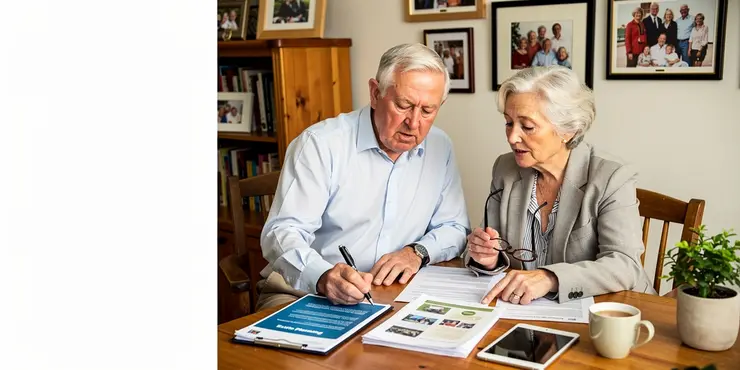
How can charitable donations affect Inheritance Tax?
Relevance: 23%
-
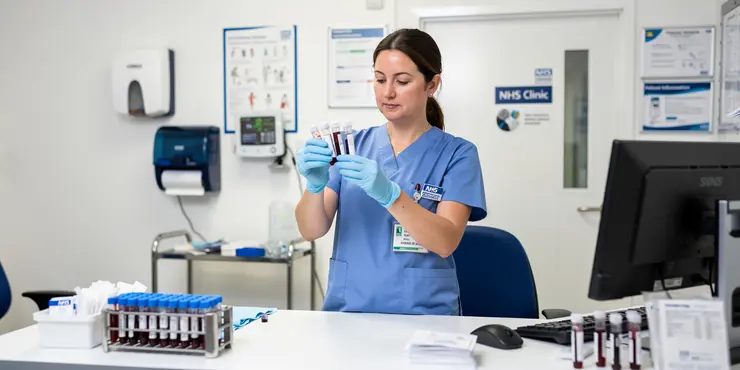
What other viruses are tested for in blood donations?
Relevance: 23%
-
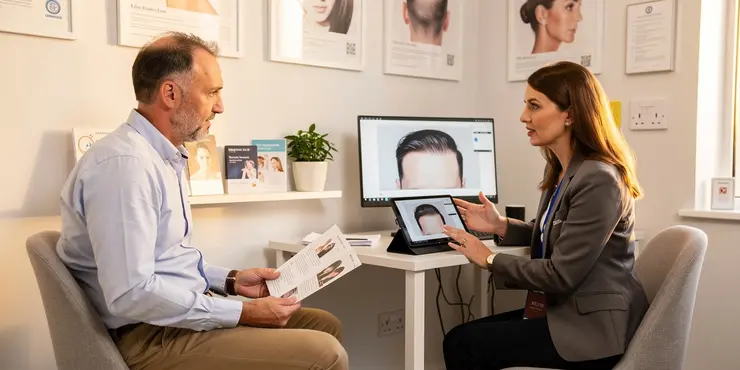
What is the cost of a hair transplant in Turkey?
Relevance: 22%
-
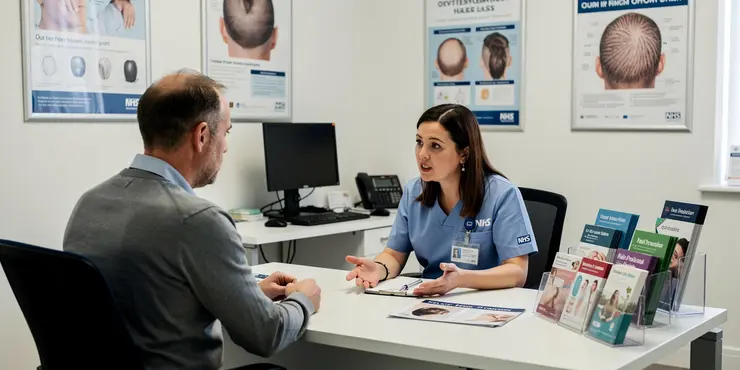
What are the risks associated with hair transplants in Turkey?
Relevance: 22%
-
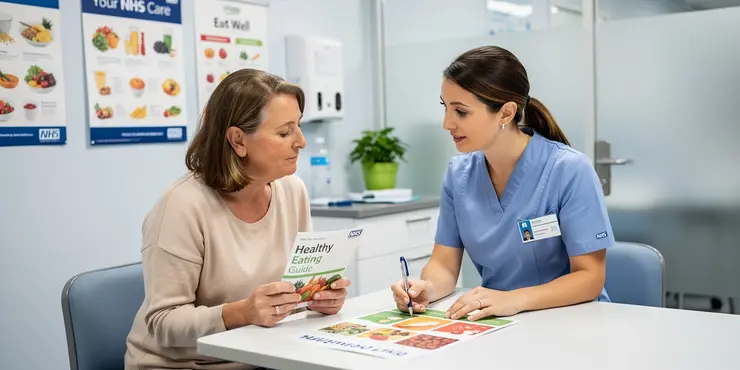
Living with early stage kidney disease
Relevance: 22%
-

How long should I stay in Turkey for my hair transplant?
Relevance: 22%
-
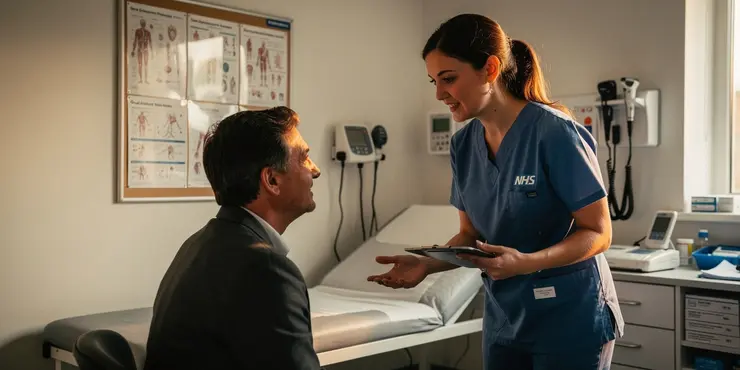
Can heart failure affect other organs?
Relevance: 21%
-
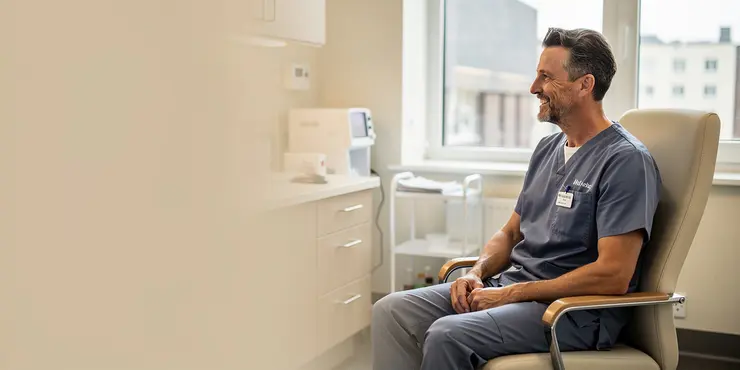
What techniques are used for hair transplants in Turkey?
Relevance: 21%
-
Why is blood donation history important in preventing disease transmission?
Relevance: 21%
-
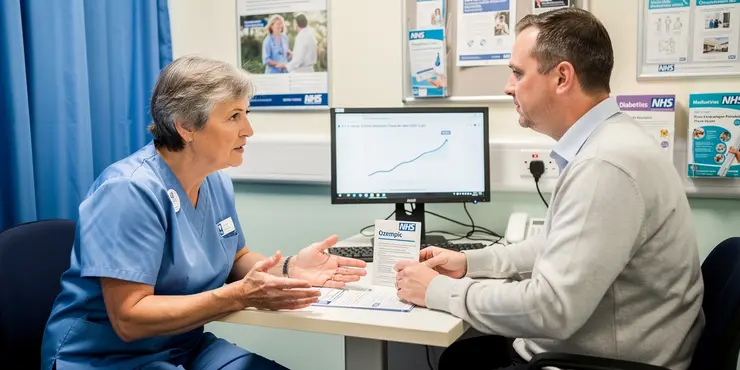
Does Ozempic have an impact on kidney function?
Relevance: 21%
-

How should I prepare for a hair transplant in Turkey?
Relevance: 21%
-
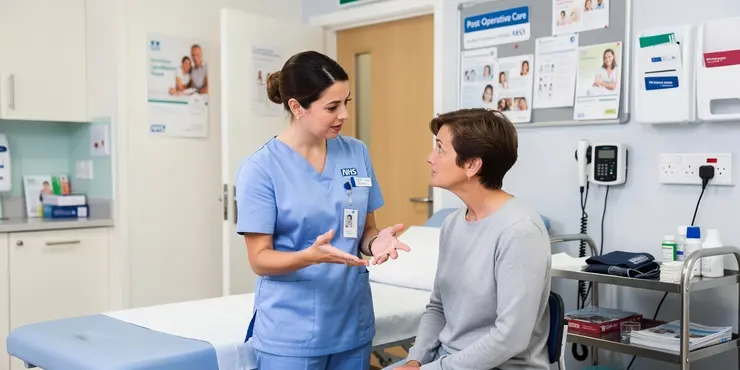
Will I need a follow-up visit after my hair transplant in Turkey?
Relevance: 21%
-
Home Haemodialysis - Donna's story
Relevance: 20%
-
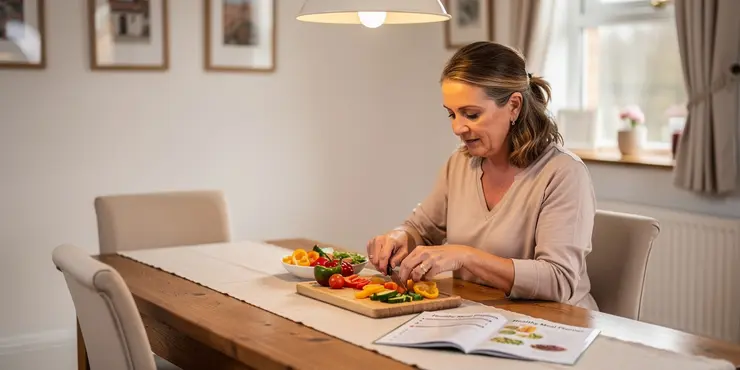
NHSGGC - Diet and Chronic Kidney Disease (CKD)
Relevance: 19%
-
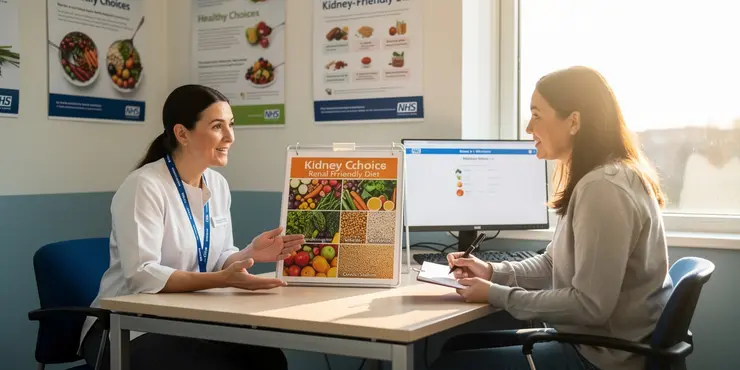
What should I eat to help with chronic kidney disease?
Relevance: 19%
-
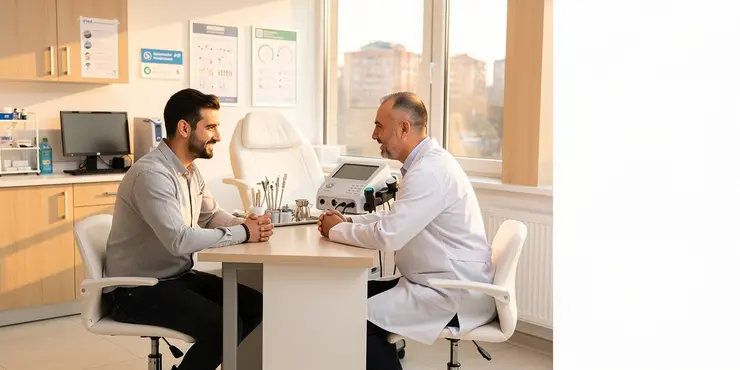
Is language a barrier for a hair transplant in Turkey?
Relevance: 19%
-
Can I appeal a long waiting time for my operation?
Relevance: 19%
-
Are there specific resources for urgent operation waiting times?
Relevance: 19%
-
Can online patient forums provide reliable information on waiting times?
Relevance: 19%
-
What are some common reasons blood transfusions are needed?
Relevance: 19%
-
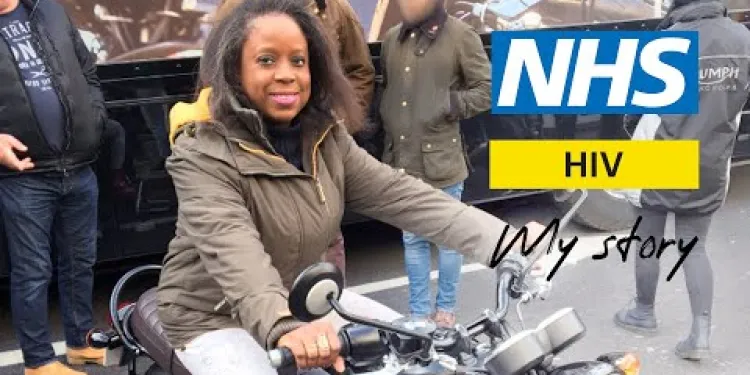
HIV - My Story - Florence | NHS
Relevance: 18%
-

Sean's Story - There is another way. Information for prescribers
Relevance: 18%
Kidney Transplant Waiting Stories – DJ Ace and Lauren | NHS Organ Donation
Meet DJ Ace: A Story of Resilience
DJ Ace, a well-known figure in the UK's music scene, is not just recognised for his beats but also for his courage in battling chronic kidney disease. While continuing to entertain his fans, DJ Ace has been candid about his journey and the challenges he has faced while waiting for a kidney transplant. His advocacy for NHS organ donation highlights the critical need for donors, especially within the Black, Asian, and Minority Ethnic communities where matches are even harder to come by.
Lauren's Journey: Hope and Perseverance
Lauren's story is a testament to the power of hope. Diagnosed with kidney disease at a young age, Lauren has spent a significant portion of her life awaiting a transplant. Her narrative intertwines with numerous hospital visits, dialysis treatments, and the emotional rollercoaster of waiting for that life-changing call from the NHS Transplant team. Lauren's journey underscores the importance of organ donation and how it transforms lives, urging more individuals in the UK to sign up as donors.
The Importance of Organ Donation in the UK
Stories like those of DJ Ace and Lauren bring to light the dire need for more organ donors in the UK. Each year, thousands of people wait for a life-saving transplant, with many patients experiencing long and anxious periods on waiting lists. The NHS Organ Donation programme plays a crucial role in matching donors to patients, but more registered donors are needed to shorten these waits and save more lives. By registering as an organ donor, individuals in the UK can make a profound difference, offering hope to those like DJ Ace and Lauren who depend on the generosity of others.
Kidney Transplant Stories – DJ Ace and Lauren | NHS Organ Donation
Meet DJ Ace: A Story of Courage
DJ Ace is famous in UK music. He also fights against kidney disease. DJ Ace shares his journey and talks about how hard it is waiting for a kidney transplant. He supports organ donation and wants more people from Black, Asian, and other communities to donate. This is important because it's hard to find the right match in these communities.
Lauren's Journey: Hope and Strength
Lauren’s story shows hope. She got sick with kidney disease when she was young. Lauren has waited for a new kidney for a long time. She visits the hospital a lot and has dialysis. Lauren waits for an important call for a transplant. Her story shows why organ donation is important. It can change lives. Lauren wants more people in the UK to sign up to be donors.
Why Organ Donation Is Important in the UK
DJ Ace and Lauren's stories show why organ donors are needed in the UK. Many people need a transplant to save their lives. But they wait a long time. The NHS Organ Donation programme helps match donors with patients. But more people need to register as donors. This can help people like DJ Ace and Lauren get transplants faster. By signing up to be a donor, you can give hope and save lives.
Frequently Asked Questions
What is a kidney transplant?
A kidney transplant is a surgical procedure where a healthy kidney from a donor is placed into a person whose kidneys are no longer functioning properly.
Who are DJ Ace and Lauren?
DJ Ace is a well-known DJ and Lauren is a kidney transplant recipient. Both have shared their stories to raise awareness about the importance of organ donation.
How long do you have to wait for a kidney transplant in the UK?
The waiting time for a kidney transplant in the UK can vary, but on average, patients might wait around 2 to 3 years.
What factors affect the waiting time for a kidney transplant?
Factors include blood type, tissue match, and overall health of the patient, as well as the availability of suitable donor kidneys.
Can someone live a normal life after a kidney transplant?
Yes, many people go on to lead normal, healthy lives after a kidney transplant, although they need to take medication to prevent organ rejection.
Why is organ donation important?
Organ donation can save lives. For individuals with end-stage organ failure, an organ transplant can significantly improve their quality of life and longevity.
How can I register to be an organ donor in the UK?
You can register to be an organ donor via the NHS Organ Donation website or when you apply for a driving licence.
What is the 'opt-out' system in the UK for organ donation?
The 'opt-out' system means that everyone is considered a potential organ donor unless they have recorded a decision not to donate.
What kind of support is available for kidney transplant patients?
Support includes medical care from specialists, counselling services, and support groups for both patients and their families.
Can living donors provide kidneys for transplant?
Yes, living donors can donate one of their kidneys, as the human body can function with just one healthy kidney.
What are the risks involved with kidney transplantation?
Risks include infection, rejection of the donor kidney, complications from surgery, and long-term use of anti-rejection medication.
What can I do to support organ donation awareness?
You can share stories like those of DJ Ace and Lauren, register as an organ donor, and have conversations about organ donation with friends and family.
What is tissue matching and why is it important?
Tissue matching ensures that the donor kidney is compatible with the recipient's body, reducing the risk of rejection and improving the chances of a successful transplant.
How do I know if I am a suitable candidate for a kidney transplant?
Your healthcare provider will evaluate your health status, including your medical history and the function of your other organs, to determine if you are suitable.
What should I expect after a kidney transplant surgery?
Post-surgery, you will need regular follow-ups, medication to prevent organ rejection, and lifestyle adjustments. Most patients experience significant improvements in health and well-being.
What is a kidney transplant?
A kidney transplant is an operation. Doctors put a healthy kidney from another person into your body. The new kidney helps your body clean your blood.
Tip: You can use pictures or videos to understand more.
A kidney transplant is an operation. In this operation, a healthy kidney from another person is put into someone whose kidneys do not work well anymore.
Who are DJ Ace and Lauren?
DJ Ace and Lauren are two people. DJ Ace plays music at parties. Lauren is his friend. They work together. They make music fun!
DJ Ace is a famous DJ. Lauren got a new kidney from someone who donated it to her. They both talk about their stories to help people understand why giving organs to others is important.
How long do you wait for a new kidney in the UK?
People in the UK wait to get a new kidney. This can take time.
The wait can be different for everyone. It depends on things like:
- Your blood type
- Your health
- How many people are also waiting
Some people wait a few months. Others might wait a few years.
To help understand more, you can talk to your doctor. You can also use pictures or ask someone to explain with easy words.
In the UK, people usually wait 2 to 3 years for a new kidney.
What makes people wait longer for a new kidney?
Doctors check a few things. They look at your blood type and if your body matches the kidney. They also check how healthy you are. It's important to find the right kidney from a donor.
Here's how you can understand this better:
- Read slowly and take your time.
- Ask someone to read with you and explain any hard parts.
- Use a dictionary or the internet to find out what tricky words mean.
Can you live a good life after getting a new kidney?
Yes, lots of people live normal, healthy lives after getting a new kidney. They need to take medicine to help their body accept the new kidney.
Why is giving organs important?
Giving organs can help save lives. When someone is very sick and their organs don't work, they need new ones. You can help by giving your organs when you no longer need them.
Tools that can help:
- Read with a friend or family member.
- Use audiobooks or videos to learn more.
- Ask questions if you don't understand something.
Giving an organ can save lives. For people who are very sick and need a new organ, getting an organ can make their lives much better and help them live longer.
How can I sign up to be an organ donor in the UK?
Do you want to help others after you pass away? You can sign up to be an organ donor. Here’s how you can do it:
1. Go online: Visit the NHS Organ Donation website. You can say you want to be an organ donor there.
2. Tell your family: Talk to your family about your choice. Let them know you want to be an organ donor.
3. Use your phone: You can also use apps or tools that help you read and understand this more easily. Some apps can read text aloud or help you with difficult words.
Once you sign up, you help others in the future. You can always change your mind later if you want to.
You can sign up to be an organ donor on the NHS Organ Donation website. You can also do it when you get a driving licence.
What is the 'opt-out' system for organ donation in the UK?
The 'opt-out' system means everyone is a donor unless they say "no." This is for people who need new organs like a heart or kidney.
If you don't want to be a donor, you must tell someone. You can say "no" on a website or tell your doctor.
If you find this hard, you can ask a friend or family member for help. You can also use simple apps or videos to learn more.
The 'opt-out' system means that everyone is seen as someone who might give their organs after they die, unless they have said they don't want to give their organs.
What help can kidney transplant patients get?
People who have had a new kidney put in need some help. There are different kinds of support they can get. Here is a list of some of the help they can have:
- Doctor visits: Regular check-ups with doctors to see how you are doing.
- Medicine: Transplant patients need to take special medicine every day. This helps the new kidney work well.
- Support groups: Talking with other people who have had a kidney transplant can make you feel better.
- Diet and exercise: Eating healthy food and staying active can keep your new kidney strong.
- Counseling: Talking to a counselor if you feel worried or sad.
If you need help, ask your doctor or nurse. They can tell you more about these support options.
You can get help from doctors who know a lot about your sickness. You can also talk to someone who helps you feel better about your worries. There are also groups where you and your family can meet other people who have the same sickness. This can help everyone feel better.
Can people give a kidney to help others?
Yes, live people can give one of their kidneys. The body can work fine with just one healthy kidney.
What are the risks of kidney transplant?
When someone gets a new kidney, it is called a kidney transplant.
Sometimes there are risks, which are things that might go wrong.
Here are some risks of a kidney transplant:
- The body might not like the new kidney and try to fight it. This is called rejection.
- There could be an infection, which means getting sick from germs.
- After the surgery, there could be bleeding or things that hurt inside.
- The person might need to take special medicine to keep the new kidney safe. These can have side effects, which might make someone feel sick in different ways.
If you are worried, talk to a doctor or nurse. They can help you understand more. Drawing pictures or using simple computer programs might also help explain things.
There are some things to watch for:
- You might get an infection.
- Your body might say "no" to the new kidney.
- There could be problems after the surgery.
- You will need to take medicine for a long time.
To help understand these risks, you can:
- Ask your doctor to explain them more.
- Use pictures or videos to learn about the surgery.
- Write down any questions you have.
How can I help people know about giving organs?
You can tell stories about people like DJ Ace and Lauren, sign up to be an organ donor, and talk about organ donation with your friends and family.
What is tissue matching and why is it important?
Tissue matching is a way to see if a person's body parts (like an organ) are a good match with someone else's body. It is a bit like finding the right puzzle piece that fits.
Tissue matching is important because it helps doctors make sure that a new body part will work well in another person's body. This is very important when someone needs a new organ, like a kidney.
Using color-coded charts and picture cards can help understand tissue matching better. Talking with a doctor or using a tablet with apps that explain organ matching in fun ways can also help.
Tissue matching checks if the donor kidney is a good fit for the person getting it. This helps make sure the body does not reject the new kidney. It makes the transplant work better.
How can I tell if a kidney transplant is right for me?
If you need help reading, try using a ruler to keep your place or ask someone to read with you.
Your doctor will check how healthy you are. They will look at your past health problems and see how well your body parts are working. This helps them decide if you are ready.
What happens after a kidney transplant?
After you get a new kidney, here is what you can expect:
- You will stay in the hospital for a few days.
- Doctors and nurses will check to make sure your new kidney is working well.
- You may feel sore or tired at first, but this will get better.
- You will take medicine to help your body accept the new kidney.
Remember, your new kidney will help your body work better, and soon you will feel stronger. It is important to follow what the doctors tell you to do.
If reading is hard, you can ask someone to read to you. Listening to information helps too!
After your surgery, you need to see the doctor regularly. You will take medicine so your body does not reject the new organ. You might need to change some habits to stay healthy. Most people feel much better after the surgery.
Useful Links
This website offers general information and is not a substitute for professional advice.
Always seek guidance from qualified professionals.
If you have any medical concerns or need urgent help, contact a healthcare professional or emergency services immediately.
Some of this content was generated with AI assistance. We’ve done our best to keep it accurate, helpful, and human-friendly.
- Ergsy carfully checks the information in the videos we provide here.
- Videos shown by Youtube after a video has completed, have NOT been reviewed by ERGSY.
- To view, click the arrow in centre of video.
- Most of the videos you find here will have subtitles and/or closed captions available.
- You may need to turn these on, and choose your preferred language.
- Go to the video you'd like to watch.
- If closed captions (CC) are available, settings will be visible on the bottom right of the video player.
- To turn on Captions, click settings .
- To turn off Captions, click settings again.
More Items From Ergsy search
-

Kidney transplant waiting stories – DJ Ace and Lauren | NHS Organ Donation
Relevance: 100%
-

Matthew's Story: Kidney Transplant - Part 1
Relevance: 73%
-

Patient Stories - Having a kidney transplant
Relevance: 62%
-

Bernard's Story - Lung Transplant
Relevance: 62%
-

Having a kidney transplant
Relevance: 60%
-

Heart-lung transplant patient shares her story
Relevance: 50%
-

Chronic kidney disease: What are the treatments?
Relevance: 32%
-

Liver transplant - Patient experience - Part 1 (Colin)
Relevance: 31%
-

Liver transplant - Patient experience - Part 2 (Lynne)
Relevance: 31%
-

Cornea transplant patient Information
Relevance: 27%
-
Cornea transplant - Your journey
Relevance: 26%
-

Hair Transplants in Turkey
Relevance: 26%
-

Can you donate blood specifically for a friend or family member?
Relevance: 25%
-

What is my risk of kidney failure with CKD (chronic kidney disease) | UHL NHS Trust
Relevance: 25%
-

What are kidney stones?
Relevance: 24%
-

Are hair transplants in Turkey safe?
Relevance: 23%
-

What causes chronic kidney disease?
Relevance: 23%
-

Danny's Story
Relevance: 23%
-

How can charitable donations affect Inheritance Tax?
Relevance: 23%
-

What other viruses are tested for in blood donations?
Relevance: 23%
-

What is the cost of a hair transplant in Turkey?
Relevance: 22%
-

What are the risks associated with hair transplants in Turkey?
Relevance: 22%
-

Living with early stage kidney disease
Relevance: 22%
-

How long should I stay in Turkey for my hair transplant?
Relevance: 22%
-

Can heart failure affect other organs?
Relevance: 21%
-

What techniques are used for hair transplants in Turkey?
Relevance: 21%
-
Why is blood donation history important in preventing disease transmission?
Relevance: 21%
-

Does Ozempic have an impact on kidney function?
Relevance: 21%
-

How should I prepare for a hair transplant in Turkey?
Relevance: 21%
-

Will I need a follow-up visit after my hair transplant in Turkey?
Relevance: 21%
-
Home Haemodialysis - Donna's story
Relevance: 20%
-

NHSGGC - Diet and Chronic Kidney Disease (CKD)
Relevance: 19%
-

What should I eat to help with chronic kidney disease?
Relevance: 19%
-

Is language a barrier for a hair transplant in Turkey?
Relevance: 19%
-
Can I appeal a long waiting time for my operation?
Relevance: 19%
-
Are there specific resources for urgent operation waiting times?
Relevance: 19%
-
Can online patient forums provide reliable information on waiting times?
Relevance: 19%
-
What are some common reasons blood transfusions are needed?
Relevance: 19%
-

HIV - My Story - Florence | NHS
Relevance: 18%
-

Sean's Story - There is another way. Information for prescribers
Relevance: 18%


